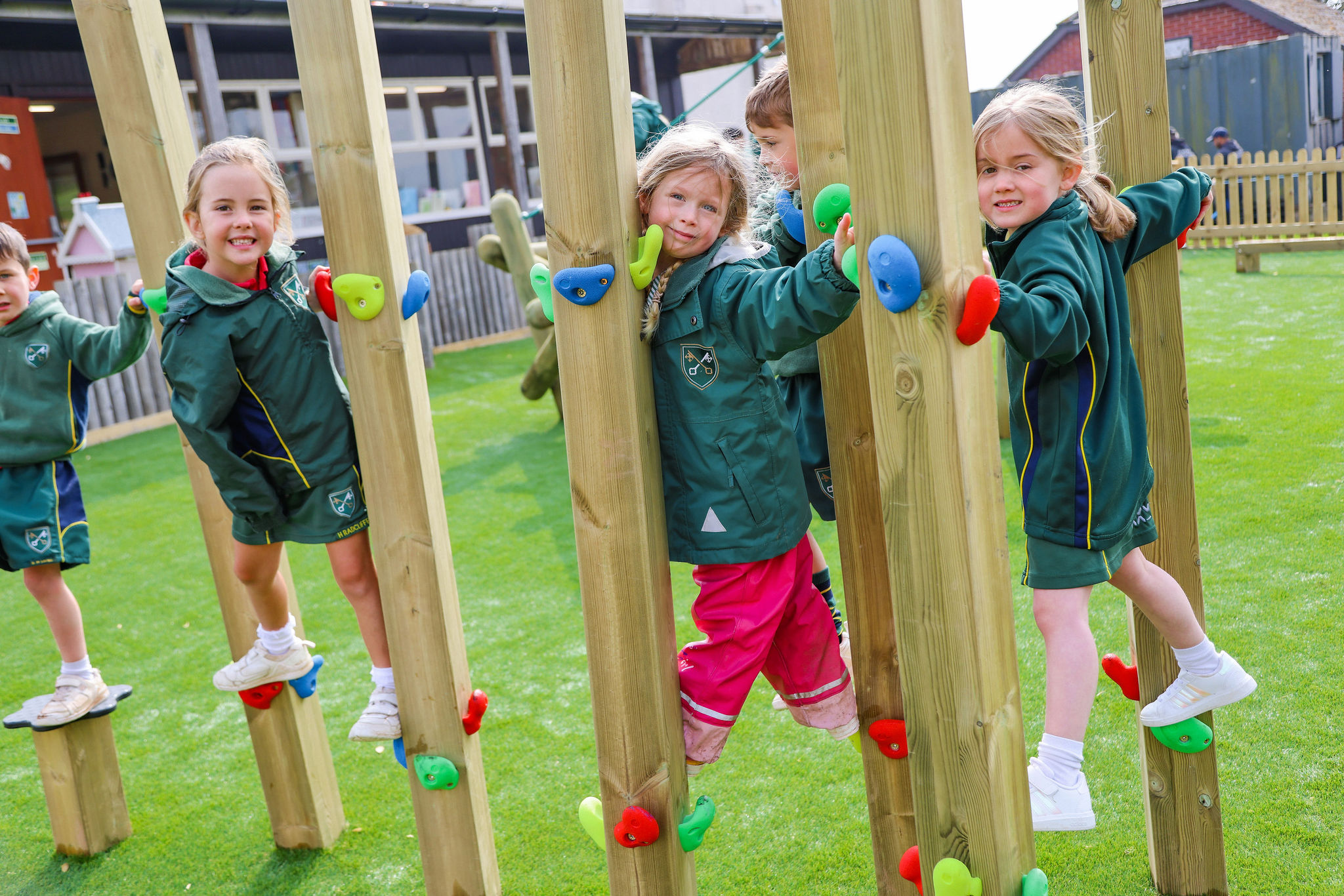In order for children to be able to develop, cope with life’s challenges and participate in the world as a healthy adult in the future, they need to have resilience. Resilience is an important key skill to have from a young age. This life skill allows us to believe in our ability to overcome any obstacles that come our way and encourages a stronger sense of self-esteem.
What is Resilience?
Resilience is essentially how we cope with change. It usually applies to how we cope with more considerable life alterations, but it could also apply to minor ones too, depending on the individual. How we react and manage ourselves after a setback can be determined by our psychological resilience.
Resilience also works hand in hand with self-confidence. If you don’t believe or value yourself, it can be hard to overcome life’s challenges, making you believe otherwise. This is why it is essential to instil it in children as they develop.
Attributes of Resilience
Resilience is ingrained in us throughout our life. For children, it can be affected by how they are brought up. However, it can also be instilled through socialising and the skills required to maintain happy and healthy relationships. A 2014 study recalled that the balance of the following factors determines resilience:
- Optimism
- Purpose
- Problem-solving skills
- Effective ‘coping style’
- A healthy self-image
- Attachment to family, learning and school
- Social aptitude including ‘pro-social values’
But how can you help your child build resilience and continue developing?
1. Allow Children to Make Mistakes
Over the past few years the pressure that children feel to be perfect and keep achieving, especially academically, has increased largely. It is important that we teach children that making mistakes is a normal part of everyday life and it gives us opportunities to learn and grow from experiences.
Often, reflecting on our mistakes prompts great learning. When children are given the freedom to make mistakes and understand that it is a natural part of the learning process, they develop a more resilient mindset.
By normalising mistakes, children become more willing to take risks, try new things, and push their boundaries. They learn that setbacks and failures are temporary and that they have the capacity to bounce back and try again.
2. Encourage Children to Try New Things
Encouraging children to try new things plays a crucial role in fostering their resilience. When children are exposed to unfamiliar experiences, whether it’s learning a musical instrument, participating in a team sport, or engaging in creative endeavours, they develop the ability to adapt and overcome challenges. By embracing new activities, children learn to step out of their comfort zones, confront uncertainties, and build resilience in the face of setbacks.
Trying new things enables children to develop problem-solving skills, build confidence, and develop a growth mindset, as they learn that failure is not a permanent roadblock but instead an opportunity for growth. The process of exploring new activities empowers children to develop a sense of self-efficacy, as they realise that they have the capacity to overcome obstacles and learn new skills.
Ultimately, by encouraging children to venture into uncharted territories, we provide them with the skills to navigate life’s challenges with resilience, adaptability, and a willingness to embrace the unknown.
3. Encourage Children to Talk About Their Emotions
Another powerful way to enhance children’s resilience is by encouraging them to talk about their emotions. When children are given a safe and supportive environment to express their feelings, it helps them develop a better understanding of their emotional experiences.
By openly discussing emotions, children learn to recognise and label their feelings, which is an important step in effectively coping with them. Talking about emotions also enables children to develop stronger social connections and seek support when needed.
When children are encouraged to share their struggles, fears, and anxieties, they realise that they are not alone and that others may have faced similar challenges. This fosters empathy and a sense of belonging, which in turn strengthens their resilience.

4. Encourage Children to Accept Change
Accepting change as a child is a crucial factor in cultivating resilience. While change can be an unsettling, scary feeling, it is an important part of life. When children are taught to embrace it rather than fear it, they develop the capacity to adapt and thrive in various situations.
By encouraging children to see change as an opportunity for growth and personal development, they learn to navigate transitions with resilience. Accepting change allows flexibility, open-mindedness, and the ability to adjust to new circumstances. It provides children with the skills to manage uncertainty and embrace new experiences, whether that’s by transitioning to a new school, adjusting to a different environment, or facing unexpected challenges.
5. Help Children Build Their Self-Esteem
Building self-esteem as a child is important for increasing resilience. When children have a healthy sense of self-worth and confidence, they are better equipped to face life’s challenges and setbacks with resilience. This can be encouraged by regularly praising children for their hard work, speaking to them with respect, and reminding them of how they have faced difficult times previously.
With a strong foundation of self-esteem, children are more likely to persevere in the face of difficulty and bounce back from failures. They develop a sense of inner strength and resilience that enables them to confront obstacles, overcome self-doubt, and maintain a positive outlook.
Building self-esteem also empowers children to establish boundaries, make healthy choices, and develop healthy goals. They become less vulnerable to negative peer pressure and more resilient in the face of criticism or rejection.

Why is Resilience in Children Important?
As situations can cause different emotions in individuals, resilience is essential in understanding that life is ever-changing; situations and feelings are not necessarily permanent.
Overall Mental Health
Resilience is an essential part of a child’s overall mental health. It is a skill that is necessary as an adult when they will have to make their own decisions whilst being faced with some of life’s hardships.
Throughout our lives, we will constantly experience change. Resilience supports a child’s acceptance of change and adversity and how to prevent stress and anxiety taking over their life.
It can help them figure out solutions under pressure, which also prevents the unhealthy consequences of stress.
Develops Core Values
Childhood is where many of us develop our core values, which we refer back to for guidance in later life.
Implementing resilience at a young age is integral for ensuring a healthy perspective on change. Without this, life can feel more challenging as children develop, often feeling overwhelmed by things they weren’t expecting. Instead of learning to cope with this when they are younger, making it a natural skill to fall back on, it is developed at an older age which can be more challenging and emotionally exhausting.
Improves Self Esteem
Most of us can agree that we naturally feel more confident if we know how to approach something.
We can’t always plan and predict what is going to happen. However, knowing how to manage yourself and your emotions is a surefire way to feel more self-confident in unfamiliar situations.
With the self-belief that you know how to handle situations, you are more likely to try new things and give things a go that you may not have usually attempted, instead of feeling apprehensive and worried.
As children learn new things at school and socialise with different groups of children, feeling self-assured and confident is integral to ensuring they carry on developing these skills.

Develops Problem Solving Skills
As highlighted, a key part of resilience is accepting a situation and re-framing the change.
A natural aspect, that comes from this, is the ability to problem solve. It helps to promote the idea of not giving up and relying on yourself to work through it.
Helps Create Relationships
However, even though much of resilience points towards relying on oneself, it also highlights the importance of turning to others for help.
Resilience comes hand in hand with understanding daily life and managing social situations that require positive relationships. Resilience helps children understand that life might not always head in the direction they need, but they have the positive advice and role models of others to support them.
Without this social framework, it can be hard to manage life healthily.
Teaching Resilience at St Peter’s Prep
Here at St Peter’s Prep, an Independent primary school, we provide a structured and supportive environment for our pupils in order for them to develop essential skills and attitudes that contribute towards resilience.
Through academic challenges, activities, and social interactions, we offer numerous opportunities for students to face and overcome obstacles, fostering their resilience. We prioritise the emotional well-being of all of our students and provide a sense of belonging for all children.
We believe that the resilience skills we teach our students is one of the many reasons they thrive in various aspects of life.
If you would like to discover more about our brilliant school, please do not hesitate to get in touch.









